 Shoestring Theory by Mariana Costa
Shoestring Theory by Mariana Costa Format: eARC
Source: supplied by publisher via NetGalley
Formats available: paperback, ebook
Genres: cozy fantasy, fantasy, fantasy romance, romantasy, time travel romance
Pages: 400
Published by Angry Robot on October 8, 2024
Purchasing Info: Author's Website, Publisher's Website, Amazon, Barnes & Noble, Kobo, Bookshop.org, Better World Books
Goodreads
A queer, madcap, friends-to-lovers-to-enemies-to-lovers time travel romance with the future of the world at stake, this charming fantasy tale is sure to satisfy fans of Legends and Lattes by Travis Baldree.
The kingdom of Farsala is broken and black clouds hang heavy over the arid lands. Former Grand-Mage of the High Court, Cyril Laverre, has spent the last decade hiding himself away in a ramshackle hut by the sea, trying to catch any remaining fish for his cat familiar, Shoestring, and suppressing his guilt over the kingdom’s ruin. For he played his part – for as the King, Eufrates Margrave, descended further and further into paranoia, violence and madness, his Grand-Mage – and husband – Cyril didn’t do a thing to stop him.
When Shoestring wanders away and dies one morning, Cyril knows his days are finally numbered. But are there enough left to have a last go at putting things right? With his remaining lifeblood, he casts a powerful spell that catapults him back in time to a happier period of Farsalan history – a time when it was Eufrates’s older sister Tig destined to ascend to the throne, before she died of a wasting disease, and a time when Cyril and Eufrates’s tentative romance had not yet bloomed. If he can just make sure Eufie never becomes King, then maybe he can prevent the kingdom’s tragic fate. But the magical oath he made to his husband at the altar, transcending both time and space, may prove to be his most enduring – and most dangerous – feat of magic to date…
Featuring a formidable Great Aunt, a friends-to-lovers-to-enemies-to-lovers romance, an awkward love quadrangle and a crow familiar called Ganache, this charming story is imminently easy to read and sure to satisfy fans of fanfiction who like their fantasy lite.
My Review:
I picked this one up for the cat. Which is fair, because from a certain perspective, this whole story is, in fact and for real, all about Shoestring the cat. Even though, like Jacob Marley in A Christmas Carol, Shoestring is dead, to begin with.
If you’re also here for the cat, I will give you one spoiler, a spoiler that I seriously wished I had at the beginning. Because at the end, Shoestring will be just fine. Really, truly. (Not knowing that gave me some terrible approach/avoidance problems when I began reading the story. I was having as hard a time dealing with Shoestring’s apparent death as Cyril was.)
In a terrible future that should never have been, Cyril has been barely surviving as what used to be the Kingdom of Farsala literally rots all around him. It’s been years with bad air, almost no sun, and a starvation diet for both himself and poor Shoestring.
Cyril’s only reason for continuing this meager, guilt-ridden existence is to catch fish for his familiar, Shoestring. Everyone else he ever cared about is dead. From a certain perspective – namely Cyril’s – it’s all his fault.
But Shoestring’s passing is the cosmic kick in the pants that Cyril needed. Without Shoestring, he’s faced with two choices. He can either wither away into death, as all mages do when their familiars die, or he can get off his magical ass and go back and fix things.
Or at least try, making this whole marvelous story a fix-it fic, set in a magical world that needs a hell of a lot of fixing. The only problem is that Cyril isn’t really the right person to get the job. But he is the right person to keep his loved ones alive – and they absolutely are.
Escape Rating B: I had some mixed feelings about this book, in spite of how much I generally adore fix-it fics. Part of that can be laid at the feets of poor Shoestring, as I was nearly as heartbroken at his early, first-chapter death as Cyril was.
And, I’ll admit, I’m used to the protagonists of fix-it fics – which I usually love – being somewhat more competent hot messes than it seems Cyril could ever possibly be. He does not look before he leaps. It often seems as if he doesn’t even look after he leaps. Or at all. He doesn’t act – he reacts – and generally cluelessly at that.
Which is how his country got in the mess it did in the first place. Because Cyril is the heir to the Grand Mage of the whole entire kingdom and he’s supposed to be a whole lot more capable than he has ever demonstrated being. His great-aunt, Heléne, the current high-court witch, is that great and it seems from Cyril’s barely-adult perspective that she always has been.
But Heléne is slowing down, and Cyril hasn’t been stepping up. Which is why everything went pear-shaped. Because he didn’t see the rot in the kingdom at a point where it could be stopped. This time around, he has to do better, to be better, and at the beginning, he isn’t.
He does, eventually, and with frequent application of several boots to his ass, get better enough to figure out what went wrong the first time around – but he’s a bit slow on the uptake. Frequently. Often.
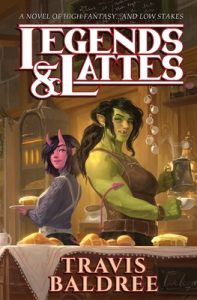 Which is why the comparisons between Shoestring Theory and Legends & Lattes fall spectacularly apart. They are both cozy fantasies – but they take vastly different approaches to both the coziness and the fantasy.
Which is why the comparisons between Shoestring Theory and Legends & Lattes fall spectacularly apart. They are both cozy fantasies – but they take vastly different approaches to both the coziness and the fantasy.
For one thing, Viv in Legends & Lattes is very competent and gets shit done. It’s just that what she wants to get done is very cozy in that her goal is to open a coffee shop. She has doubts, she has fears, she backslides in her ambition to eschew her old, violent ways as a mercenary – but she gets the job done because of herself.
Cyril gets the job done in spite of himself. In the end he does get there, but he faffs around a LOT. If it wasn’t for his friends he wouldn’t manage to get his head on straight. He IS, actually, quite capable – but he’s never been pushed to apply himself until now and it takes him a LONG time to get out of that mindset.
A lot longer than it took this reader to figure out who the true villain of the piece really was, and that Shoestring’s restoration would be part of Cyril’s reward for finally getting his act together.
In the end, I liked Shoestring Theory, but not nearly as much as I expected to. There just wasn’t enough of Shoestring himself in the story, and Cyril turned out to be a surprisingly incompetent protagonist for a fix-it story.
But I did enjoy the way the story turned itself inside out, that all of Cyril’s intentions and memories of that first, terrible, time around turned out to be not what he thought they were, and that he did manage to get to the truth and the whole truth of what went wrong the first time – and that it wasn’t ALL his fault.
So, in spite of Cyril’s frequent faffing around, the one thing he always was that shone through was that he loved deeply if not always wisely, that he had a huge capacity for trust even if it was sometimes misplaced, and that the story, the kingdom and even Cyril himself are finally saved by the depth of his loyalty to those he loves – and the reciprocation of that love and loyalty in full measure in return.

 Shoestring Theory by
Shoestring Theory by 

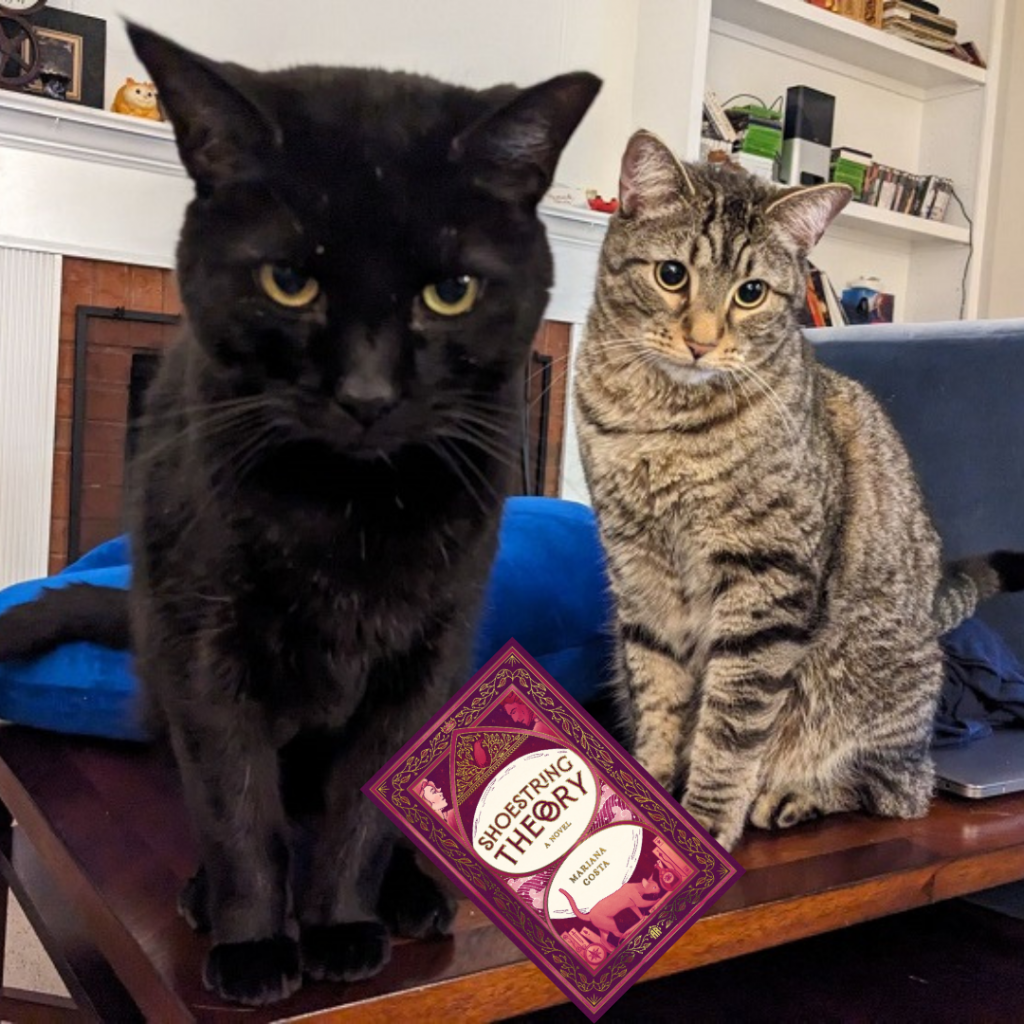
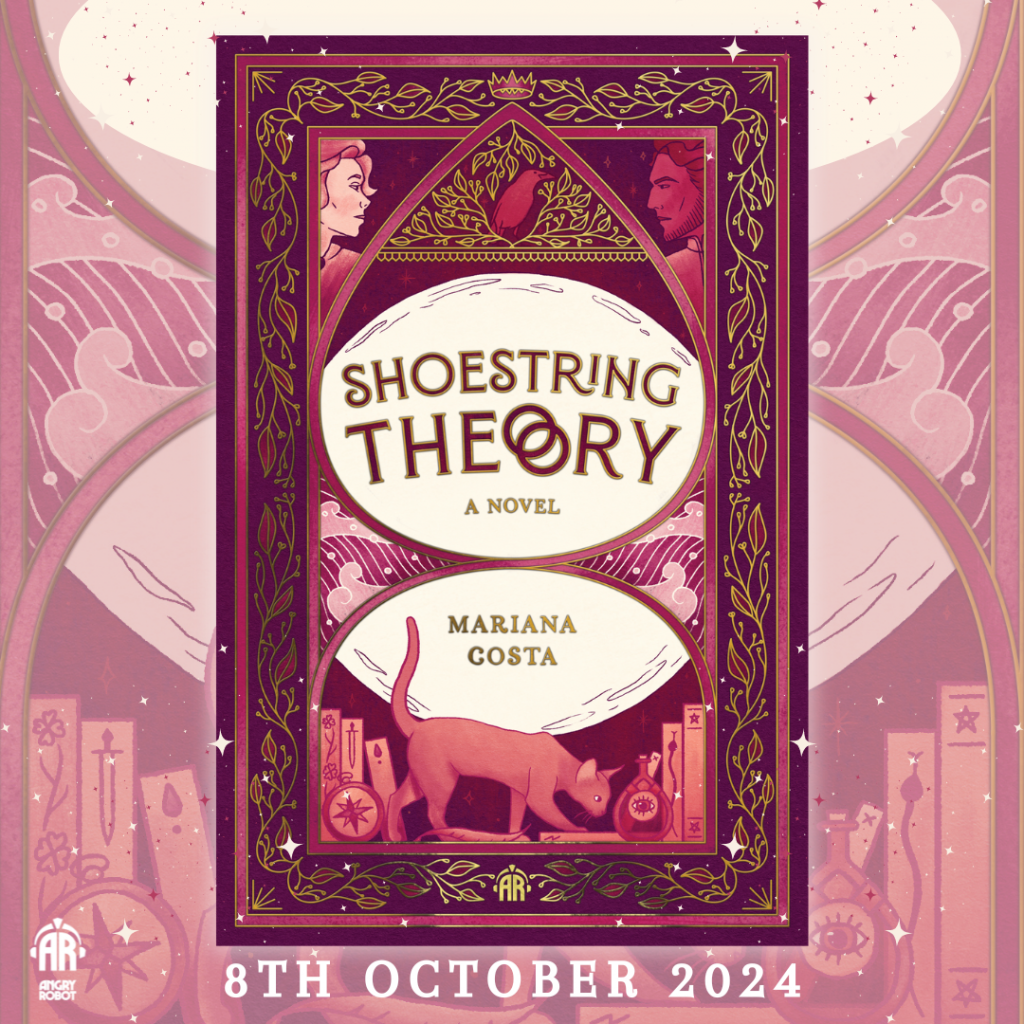
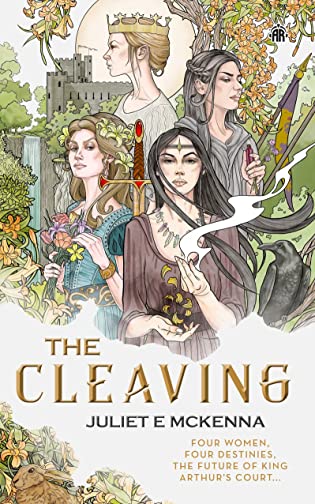 The Cleaving by
The Cleaving by 
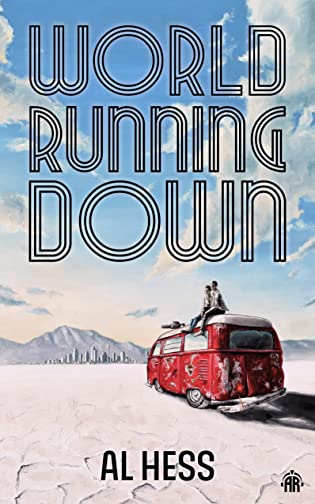 World Running Down by
World Running Down by 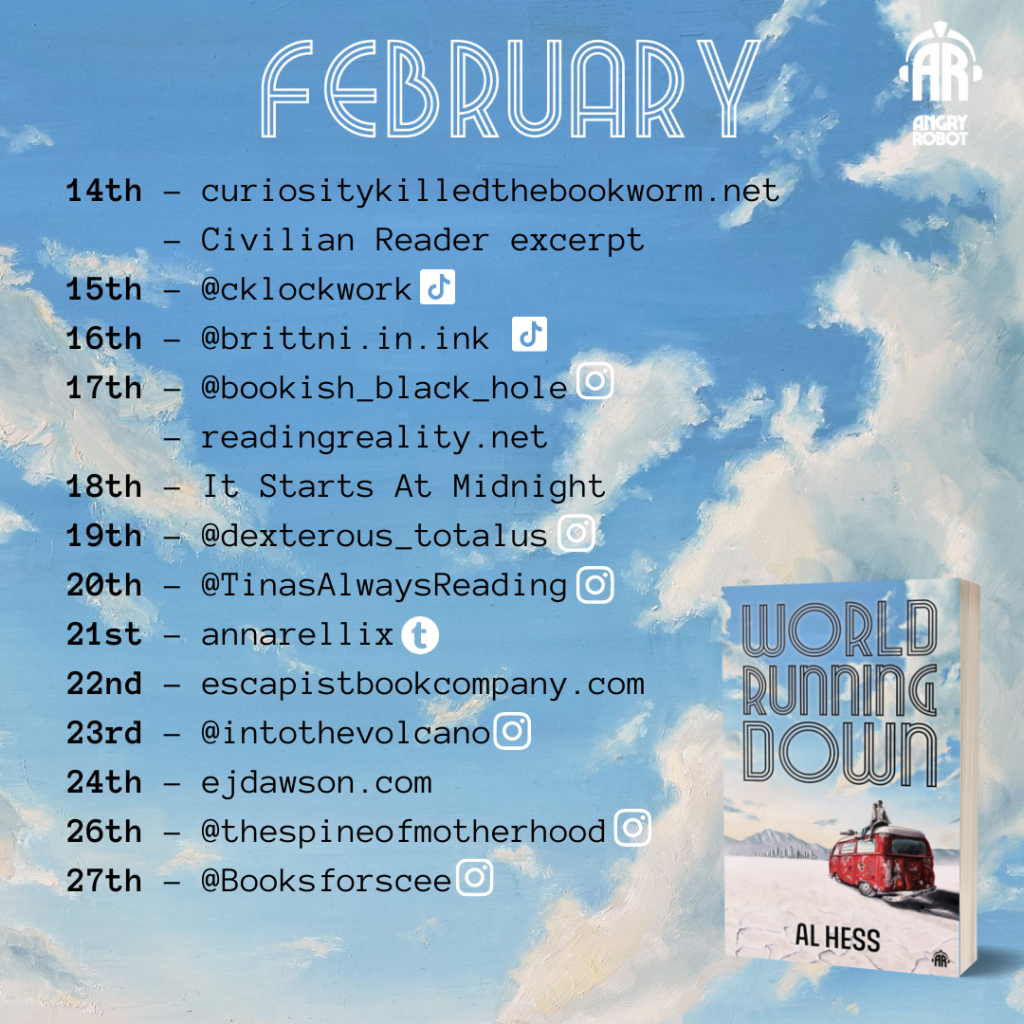 FEBRUARY
FEBRUARY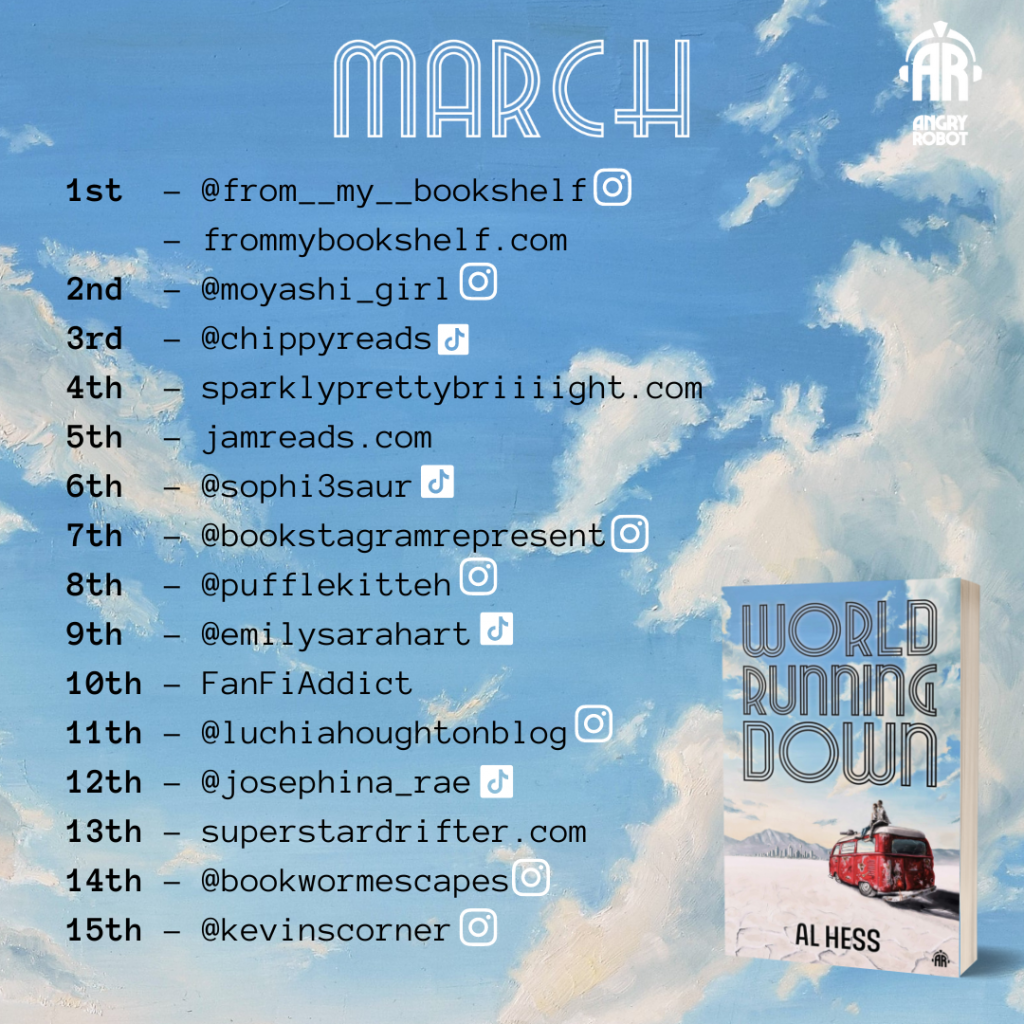 MARCH
MARCH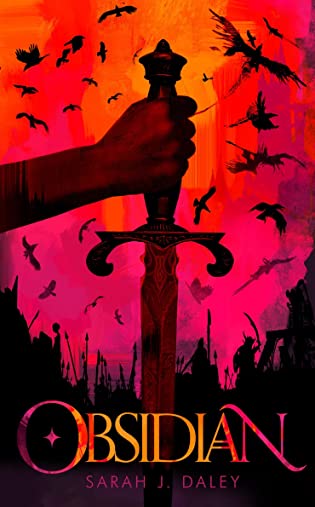 Obsidian by
Obsidian by 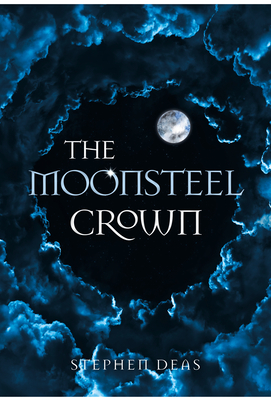 The Moonsteel Crown (Dominion, #1) by
The Moonsteel Crown (Dominion, #1) by 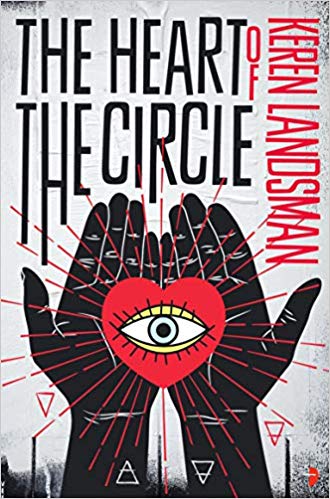 The Heart of the Circle by
The Heart of the Circle by 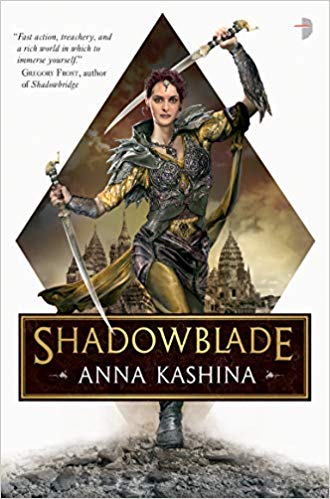 Shadowblade by
Shadowblade by 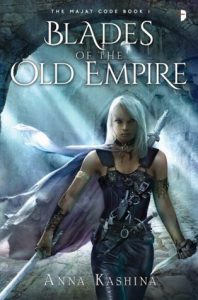 The reason that I expected to love Shadowblade was that I absolutely adored the author’s previous series, the
The reason that I expected to love Shadowblade was that I absolutely adored the author’s previous series, the